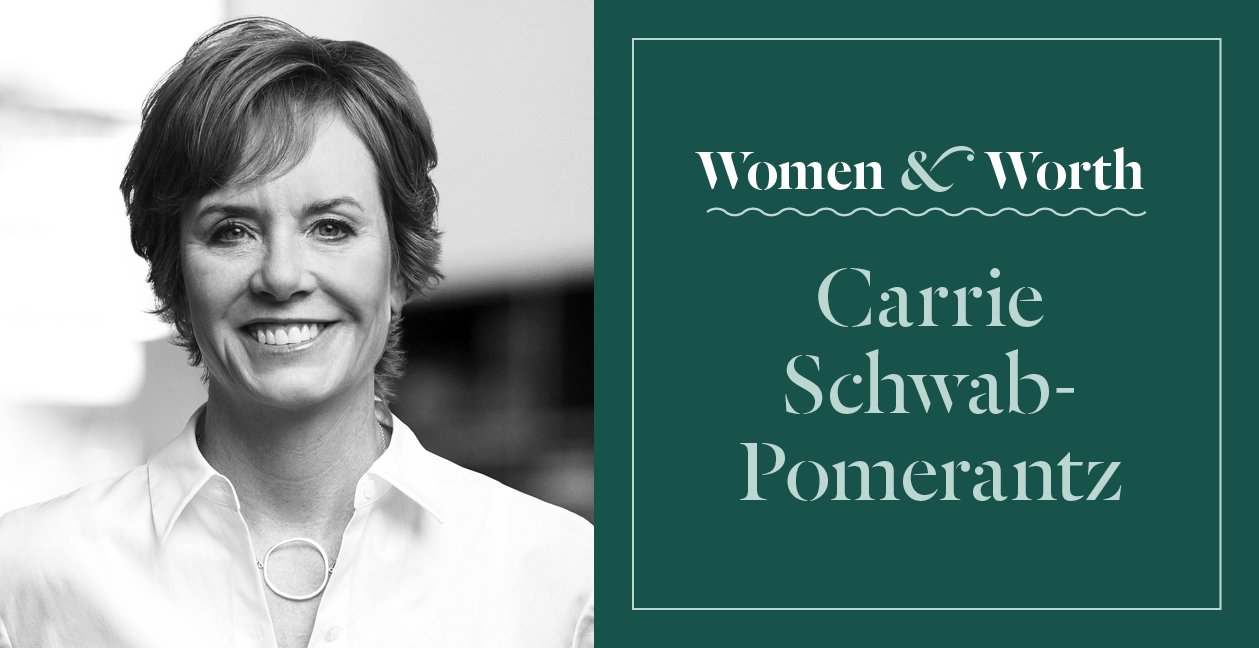Q: You’re a lifelong financial literacy advocate. What’s your power or superpower?
A: My superpower is advocating for financial literacy and convening individuals and institutions to take action. From partnering with Boys and Girls Clubs of America to writing The Charles Schwab Guide to Finances After Fifty, I believe that everyone from teens to the elderly should have access to relevant and essential information on how to manage their finances.
You’re also the commissioner on the San Francisco Commission on the Status of Women. What’s your mission?
The commission’s overarching goal is to foster the advancement of women and girls through policies, legislation and programs throughout the city of San Francisco. For me personally, that means calling attention to the fact that nationally and locally women still earn only 80 cents to a man’s dollar and are falling behind when it comes to saving and investing and looking for solutions that engage and empower women to take ownership.

Your father is Charles Schwab, the founder and chairman of the Charles Schwab Corporation. But while you were growing up, he was just starting out as an entrepreneur. What lessons did you learn from your upbringing?
Watching my dad taught me to value independence and hard work. Financial literacy allows you to build independence, and that’s the reason I’m so invested in advocating for financial literacy today.
Financial firms have often had a hard time connecting with women. What are the myths about gender inequality in investing that need to be exposed?
One myth that needs to be exposed is that women aren’t strong investors or money managers. Schwab’s 2018 Financial Literacy survey found that young women have more financial grit than their male peers, but their lack of savings and investing is likely attributed to social and cultural factors, most importantly that parents talk to their boys and girls about finances differently, starting at a very young age. Money management is not about how smart you are, it’s about exposing women to the power of investing at an early age.
Twenty-five years from now, what conversation do you think we will be having about women’s progress?
I hope it becomes culturally acceptable to regularly engage in discussing and owning our finances. To get there we need to commit to equal pay for women, teaching financial literacy in schools and have parents become more cognizant about how they talk to boys and girls about money.







